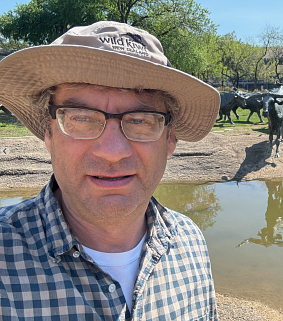Faculty bio | Stable Isotope Lab | Blog | 541-346-3817
Ilya Bindeman is an academic expert in Earth Sciences, especially in Volcanology, Isotope Geochemistry and Early Earth studies. He is a head of the University of Oregon Stable Isotope Lab (UO Analytical Service Center) where the analysis of oxygen, hydrogen and carbon isotopes is performed to understand geological and environmental conditions. He is working to understand volcanic processes and Earth’s geochemical cycles. His research has brought him to many areas around the world, including Iceland, Yellowstone, Kamchatka and South Africa. His research combines field observations, analytical measurements, lab experiments and theoretical or numerical model development to understand observations and the underlying processes.
Recent Media:
Iceland’s Reykjanes volcanoes could erupt for decades, maybe even centuries (Forbes, June 27, 2024)
Iceland volcano eruptions may last 'years to decades' (Newsweek, June 26, 2024)
Volcanic eruptions in Iceland could go on for decades, threatening ‘fundamental infrastructure’ (Courthouse News Service, June 26, 2024)
Evidence of Earth’s Oldest Glaciers Found in South Africa (Eos, August 17, 2023)
World's oldest glacier dates to 2.9 billion years ago, research finds (Live Science, July 23, 2023)
Supercomputers yield sharper view of Yellowstone's magma (Around the O, April 17, 2023)
Reaching closer to Earth’s core, one lava scoop at a time (The New York Times, July 22, 2022)
Earth's 1st continents arose hundreds of millions of years earlier than thought (LiveScience, Nov. 8, 2021)
Magma’s heat slowly built today’s Columbia River basalts (Around the O, July 17, 2020)
Continental growth spurt 2.4B years ago brought snow, oxygen (Around the O, May 25, 2018)
Land rising above the sea 2.4 billion years ago changed planet Earth (EurekAlert!, May 23, 2018)

